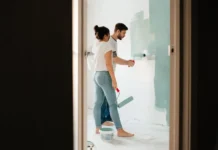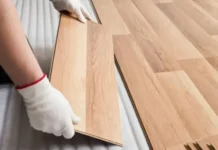When your plumbing freezes up, the lack of running water is the least of your worries. The fact is, the frozen water in the pipes will expand until the pipe bursts.
Then, when the water thaws, it leaks. This can damage your ceiling, walls, and/or floor, depending on where the frozen pipes are located. Ultimately, you’ll have to repair the pipes and the water damage, to say nothing of the resulting mold infestation.
But wait a minute. Why not just take steps to prevent frozen pipes in the first place? Incidentally, that’s exactly what we’re going to teach you today.
This guide lists 5 easy steps for effective frozen pipe prevention. Read these tips and follow these steps to avoid certain disaster.
- Winterize Your Plumbing Before Going on Vacation
If you’re going to be out of the house for a while during winter, take steps to winterize your plumbing. Mostly, this consists of draining all water from the pipes so there’s none left in them to freeze. Read this guide for specific steps on how to winterize plumbing.
- Remove Your Hose and Blowout Your Sprinklers
If water freezes in your hose, it freezes the water in the spout as well. Eventually, all the water in the pipe freezes and the pipe bursts. Always disconnect your hose before winter.
Likewise, have all the water in your sprinkler pipes blown out by a professional sprinkler blowout service. Otherwise, the same thing will happen to them.
- Insulate Exposed Pipes
Much of your plumbing is underground, surrounded by earth or concrete. Any that isn’t is typically wrapped in artificial insulation of some kind.
Still, check your attic, garage, and other out-of-the-way areas on your property for exposed pipes. If you notice any, get them insulated so they don’t freeze.
- Keep Your Heater On and Open Interior Doors
Even if you’re out of your home for most of the day, don’t turn your heater off completely. The lower your home’s interior temperature drops, the more likely your pipes are to freeze.
Don’t worry about your energy bill. It will still be much cheaper than repairing the damage of a burst pipe that floods your home.
In addition, make sure all air vents are open and keep interior doors open as well. This ensures that the whole house and, therefore, all your plumbing, is warmed by your heater.
Furthermore, keep your garage door shut to hold in as much heat as it can.
- Keep Your Tap Dripping
Lastly, it’s more difficult for running water to freeze. Therefore, keep the water running by letting every faucet in your home drip just slightly.
This is usually only necessary in locations that reach extremely cold temperatures. As we said, pipes are generally well-insulated. Still, if winter temperatures in your neighborhood drop far below freezing, let the tap drip.
Prevent Frozen Pipes With These Tips
Lucky for you, this knowledge equals crisis-averting power. But don’t just sit on it. Apply these tips to prevent frozen pipes this winter.
Better still, we have so much more valuable knowledge to give! Keep checking our blog for the latest and best tips about lifestyle, technology, and more.



































































